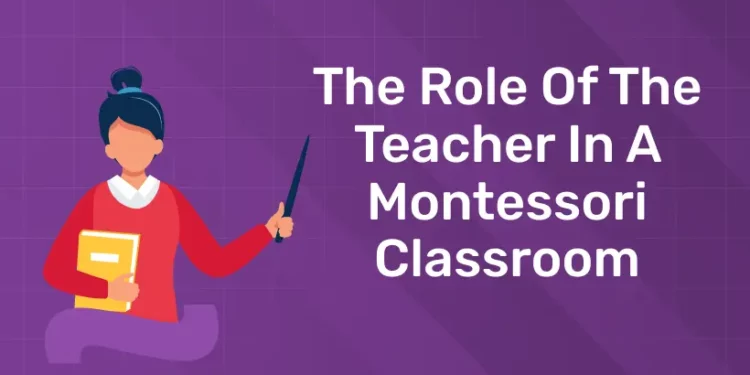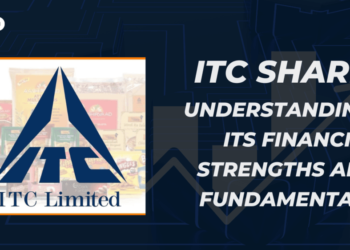Table of Contents
Everything in a Montessori classroom has been carefully chosen and organized to serve a specific purpose. It is brimming with scientifically developed Montessori educational resources, and the purpose of Montessori educators in this setting is to watch, track, and mentor each child’s educational development in order to support them in becoming brave, self-assured, and autonomous lifelong learners.
Start your journey to becoming a certified Montessori teacher! Get free Demo Here!
Role Of The Teacher In A Montessori Classroom
In a Montessori classroom the role of a teacher is different from that of a standard educational setting. The teacher in a Montessori classroom is commonly referred to as a “guide” or “directress.” Dr. Maria Montessori created the Montessori method, which places a strong emphasis on learning that is centered on the child and encouraging self-directed play. The following are important facets of the function of the instructor in a Montessori classroom:
As a Guide
Instead than giving pupils direct instructions, teachers point them in the direction of activities that suit their interests and developmental stage. Children are given the freedom to explore on their own as they are introduced to materials and shown how to use them.
As an observer
Teachers watch every child carefully to determine their learning preferences, interests, and requirements as they develop. This facilitates the customization of each learner’s experience.
As a Promoter Of self Sufficiecy
Educators urge students to accept accountability for their behaviors and knowledge. Independence and self-control are encouraged by this. Kids are allowed to select their own tasks and do them at their own speed as long as they follow the classroom guidelines.
Unlock your passion for education and shape young minds as a Montessori teacher!
As a Supporter Of Social Development
Cooperative learning and polite interactions between students are two ways that teachers foster a feeling of community in the classroom. Via non violent communication and problem-solving methods, they assist kids in settling disputes and gaining social skills.
Serving Personalized Care
Using each child’s interests, strengths, and areas for improvement in mind, teachers develop personalized lesson plans. Their advice and support are modified based on their periodic evaluations of each child’s progress.
As a Continuous Learner
To enhance their comprehension of the concepts of Montessori education and child development, Montessori instructors participate in ongoing professional growth. Continually observing the youngsters and their changing requirements, they modify their techniques and resources.
As an Environment Coordinator
An environment that promotes independence, inquiry, and learning is created and maintained by teachers. Making resources and activities approachable and welcoming to kids is part of this. In order to support progressive learning, teachers make sure that the materials are organized sequentially and appropriate for the children’s developmental phases.
As a Role Model
Teachers create an example for kids to follow by acting with respect and positivity. They show tolerance while children explore and learn at their own pace, and they show respect for each child’s unique learning process.
Entri’s Montessori Teacher Training Course
1: What is the primary focus of the first plane of development in the Montessori method?
Being certified by the appropriate organization can make all the difference in pursuing a happy career as a Montessori teacher. With the goal of giving its students the tools they need to be successful in the field of Montessori education, Entri App offers the best Montessori Teacher Training Course. The curriculum is well-structured. Details about fees can be obtained by contacting Entri App.
Learn the Montessori philosophy, classroom management techniques, and hands-on activities!
CONCLUSION
A Montessori teacher’s many duties revolve around creating a secure, stimulating environment where children can develop into independent individuals who value education and social skills. In addition to leading rather than lecturing and watching rather than meddling, the emphasis is on fostering a child’s natural curiosity and intrinsic motivation to learn.
Frequently Asked Questions
What is the significance of observation in a Montessori teacher’s role?
One of the most important aspects of a Montessori teacher’s job is observation. Teachers can learn about pupils’ development, interests, and difficulties by keeping an eye on them. This data helps the instructor introduce new exercises and offer tailored support.
How do Montessori teachers assess student progress?
Observation is the primary method of assessment in Montessori education as opposed to formal testing. Teachers maintain thorough records of every child’s activities, accomplishments, and developmental milestones in order to monitor their progress.
How do Montessori teachers stay current with best practices?
Montessori educators participate in continual professional development via conferences, workshops, and continuing education. By being up to date with best practices, they can guarantee that their kids receive the finest instruction and support possible.
How do Montessori teachers support individual learning?
By providing individualized direction, presenting lessons when a child is ready, and letting kids select activities depending on their interests and developmental stage, Montessori teachers foster individual learning. This method honors the individual learning path of every child.










